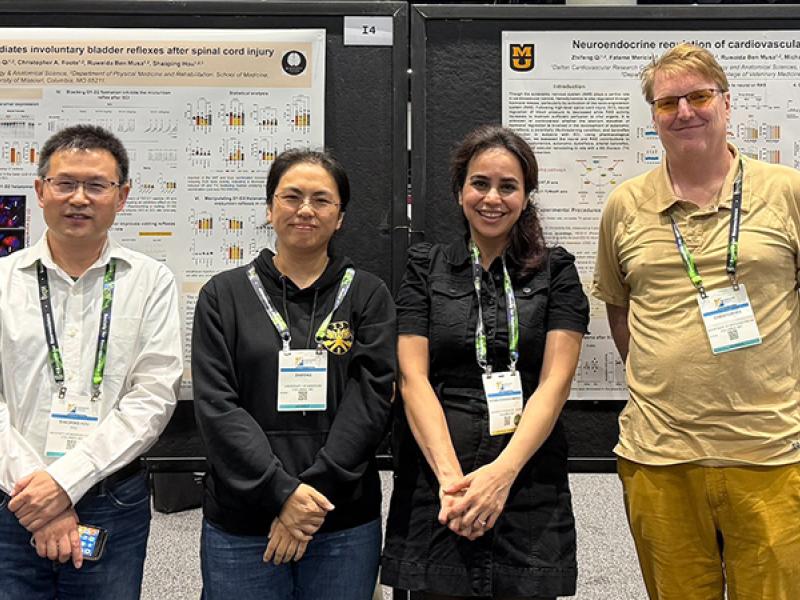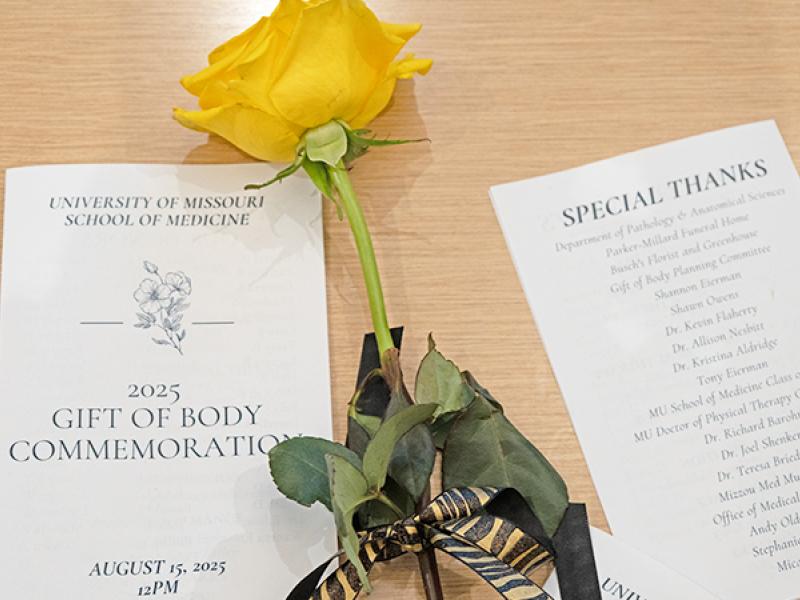Digital Pathology and Informatics (DPI) in the Department of Pathology and Anatomical Sciences was founded to deeply incorporate informatics expertise into the department’s clinical, research and educational missions.
The director of the division works closely with other division members as well as members of the Translational and Cancer Bioinformatics Lab, OneHealth BioRepository, Whole-Slide Imaging (WSI) Analytics Lab, MU Informatics Institute (MUII), MU Department of Computer Science (CS), and the MU Department of Health Management and Informatics on various informatics projects.
Faculty include:
- Richard Hammer, MD, Director of Digital Pathology and Informatics
The division’s faculty conducts research in translational and cancer bioinformatics, imaging informatics, pathology informatics, computational epigenetics and precision medicine informatics. Among such research projects are studies on computational reasoning over molecular knowledge networks to support precision medicine, function of long non-coding RNAs, molecular underpinnings of intra-tumor heterogeneity, brain damage imaging, diagnostics heuristics and many other topics.
The faculty teach pathology informatics, translational and cancer informatics, and computational models to pathology residents, MUII and CS graduate students. Recently, a new course on Precision Medicine Informatics was offered in the School of Medicine and MUII. The division’s faculty and staff also are involved in internal development and support of laboratory information systems such as anti-nuclear antibody (ANA) and diabetes laboratories, tissue bank information system, gross, WSI and electron microscopy images as well as Digital Pathology PACS system, Telepathology and other laboratory software.
The division’s Whole-Slide Imaging Analytics Lab offers a whole-slide imaging service that provides high-resolution bright-field slide scanning, processing and analysis by software algorithms and board-certified pathologists. The lab accepts standard glass slides and produces whole-slide digital images in SVS format as well as publication-quality files ready for inclusion in papers and posters. Annotations, commentary and analysis by machine-learning algorithms and board-certified pathologists, such as nuclear/membrane IHC staining quantifications, are provided.
Selected Publications by DPI Faculty and Staff
- Thanintorn N., Wang J., Ersoy I., Al-Taie Z., Jiang Y., Wang D., Verma M., Joshi T., Hammer R., Xu D., Shin D*, “RDF SKETCH MAPS – KNOWLEDGE COMPLEXITY REDUCTION FOR PRECISION MEDICINE ANALYTICS”, Pacific Symposium on Biocomputing, Hawaii, January 2016 – in press
- Shin, D.*, Arthur, G., Popescu, M., Korkin, D., & Shyu, C.-R. (2014). Uncovering influence links in molecular knowledge networks to streamline personalized medicine. Journal of Biomedical Informatics. doi:10.1016/j.jbi.2014.08.003
- Shin D*, Rogatsky E and Stoyanov A*, “Simultaneous monitoring of multiple transitions in mass spectrometric analysis improves limit of detection for low abundance substances in complex biological samples.” J Chromatograph Separat Techniq 4: 206. doi:10.4172/2157- 7064.10002063
- Chen Z, Shin D, Chen S, Mikhail K, Hadass O, et al. (2014) Histological Quantitation of Brain Injury Using Whole Slide Imaging: A Pilot Validation Study in Mice. PLOS ONE 9(3): e92133. doi:10.1371/journal.pone.0092133
- Hadass O, Tomlinson B, Gooyit B, Chen S, Purd J, Walker J, Zhang C, Giritharan A, Purnell W, Robinson C, Shin D, Schroeder V, Suckow M, Simonyi A, Sun G, Mobashery S, Cui J, Chang M*, Gu Z*, “Selective Inhibition of Matrix Metalloproteinase-9 Attenuates Secondary Damage Resulting from Severe Traumatic Brain Injury.”, PLOS One, 2013, 8:10
- Shin D*, Arthur G, Caldwell C, Popescu M, Petruc M, Diaz-Arias A, Shyu C., “A pathologist-in-the- loop IHC antibody test selection using the entropy-based probabilistic method.” Journal of Pathology Informatics 2012;3:1
- Petruc M, Popescu M, Fresen J, Shin D, Shyu C, “Quantifying the quality of imaging interpretations.”, AMIA FALL Symposium 2012, Chicago IL, USA







